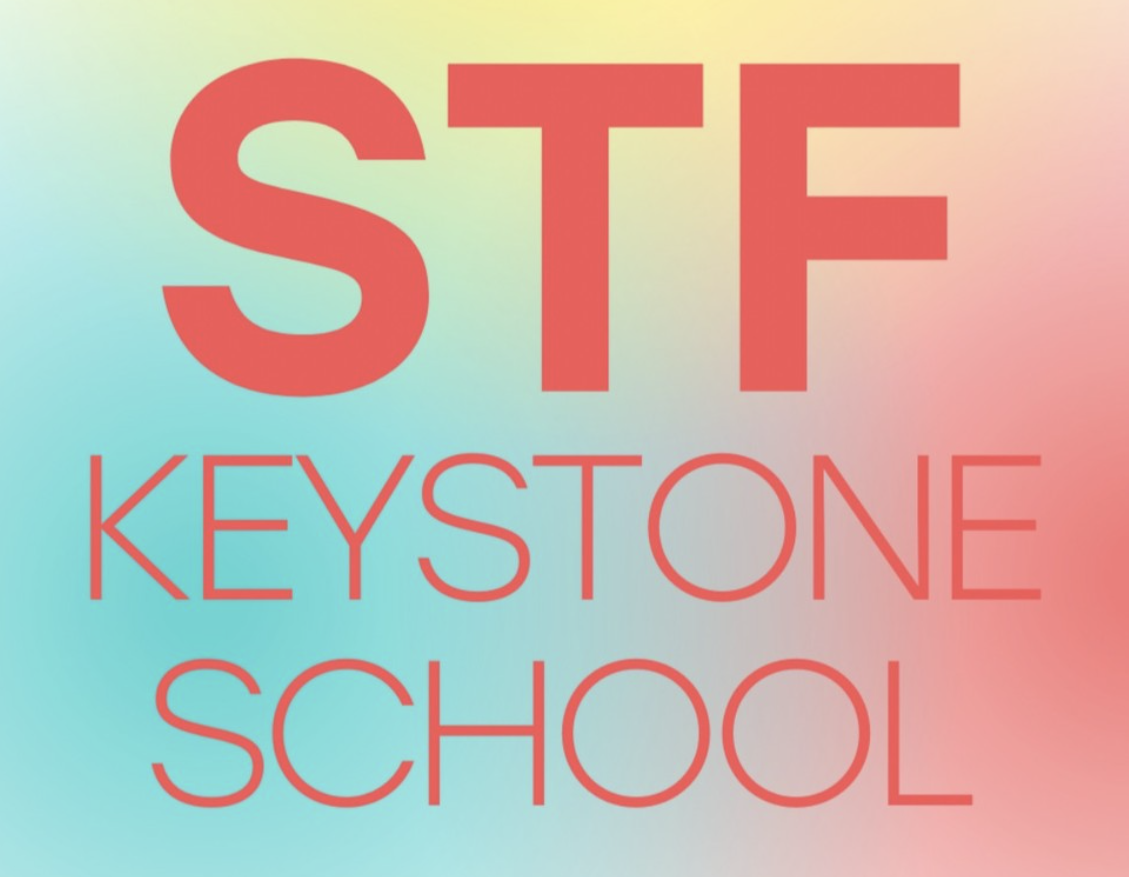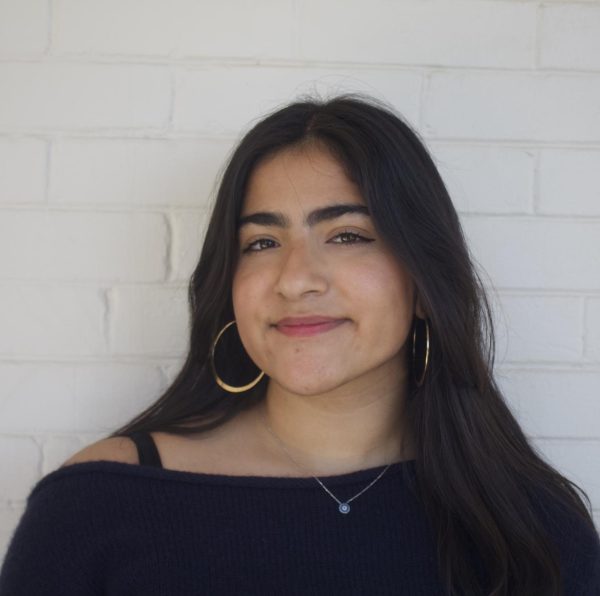She’s The First is a Keynote series in which I interview different women in the Keystone community, whether they be faculty, staff, or parents, to learn more about their lives, careers, and how they empower those around them. It is an initiative with Keystone’s chapter of She’s The First through the Keystone Matters Council. The international nonprofit organization aims to empower, educate, and uplift girls everywhere. If you are interested in She’s The First, you can follow us on Instagram at @stfkeystoneschool.
To kick off this series, I believe that there was no better person to start with than an empowering woman who is so crucial to our Keystone community: Lower and Middle School principal Mallory Matthews. Mrs. Matthews is a Wittenberg College and Harvard University Alum who joined Keystone in 2021, in the midst of the COVID-19 Pandemic. Since then, she has made large strides at Keystone School through her initiatives like *fill in*. Her passion for education and the students around her shines through her work and commitment to our community.
This interview has been edited for clarity.
To start, I’d love to learn a little more about your childhood and background. Where did you grow up? What did you do after high school and college? How did you end up here?
I grew up in Connecticut and did my undergrad at Wittenberg University in Ohio, a very small liberal arts college, where I double majored in history and education and minored in political science. From there, I went directly into teaching, because from an early age, I knew I wanted to be a teacher. I started teaching at 21 in the suburbs of Chicago. At 25, I decided to teach abroad, as studying abroad was something I had always wanted to do but couldn’t because I played tennis in college. Eventually, I decided to move to Bogota, Colombia, and teach middle school social studies, live on my own, and travel everywhere. After four years, I think I had been teaching enough to finally understand what I was passionate about in the field of education, and I had always wanted to go to graduate school but never knew what I wanted to specialize in. I enrolled in a human development and psychology program that was offered at Harvard. While I loved teaching history, I was really intrigued by the mindset and development of a child and how that impacts their overall school and learning experience. I’m really glad I did graduate school later on in life, after having the teaching experience to back it up. After graduate school, I started teaching again. I was a teacher, dean, and director at schools in Houston and Park City, and eventually, I came to Keystone.
You mentioned that you were very glad to do graduate school later on in life. How did your time at Wittenberg and Harvard shape the person you are today?
I don’t think I was ever someone who really had a specific calling or drive to keep going with schooling and knowing exactly what I wanted to do, aside from being a teacher. I wasn’t as motivated as I wanted to be. I think that undergraduate school for me was a wonderful experience where I got to explore a lot of different things. I went to school at 17 and graduated at 21, and I think I needed to grow a lot in my 20s to understand what was really a driving force that brought me joy in my work-life. We have students here at Keystone who are already dialed in and know what they want to do, but that happened for me a little later on. I don’t know that I really had anything monumental happen to me in undergrad, even though I did have a great time playing a sport and making a lot of friends. Going to graduate school later, with nine years of work experience in my chosen field, I think I could really appreciate all the academia I took for granted in the beginning. I had so much more of an appreciation for what a student can gain in a classroom and how that was going to impact my career. Not going directly into grad school was really important because, already having the knowledge that I had from teaching, I now had a genuine passion for what I was learning and how it could help me. That completely changed my experience; being among leaders in the field, people who had had significant impacts in education. I was able to appreciate everything I had.
I feel like with education especially, knowing what a student can gain in a classroom, like you said, must have been really important now seeing the field you’re in. If you could give any advice to yourself going through those moments, what would you say?
I think I had a very protected and privileged life, even through grad school. I made very safe choices, and I wish I would have encouraged myself to try new things, put myself out there, and be vulnerable. I was too worried about how others might perceive trying something and failing and didn’t realize how much of a gift failure could be. Living in another country, where I didn’t know the language, really forced me to put myself out there. It was a baby-step process, but it was life-altering in such a good way. I wish I had been more able to appreciate that process without expecting perfection along the way.
I know you said you didn’t really know what inside education you wanted to do. How did you choose teaching early on and what inspires you to keep working in the field?
My parents were both in finance, but I did not follow that track at all. I started babysitting at a young age and loved taking care of kids. In the summers I came down to Texas, to Camp Longhorn, and was a counselor there all throughout high school and college. I feel like I had a calling. I always loved history, and there’s actually a stereotype that, you know, history teachers are always football coaches, and I was determined to make history class something that was fun. To me, it wasn’t just about knowing facts and people, but more of learning the perspectives and the bias, and all the socio-economic and cultural impacts of these facts. I really wanted to be the type of teacher who was able to draw out opportunities for students and make things exciting and engaging. There is so much opportunity in the field. I had a friend who worked in Under Armour to make sure that they had ethical and socially responsible practices. Yes, I like history, but what I love about teaching is how to connect with a child and how to help a kid that’s struggling. To me, that’s more motivating than teaching about, like, the Civil War.
Have you ever been the first to mark a change in your life or career or have you ever done something within your career that’s really changed your perspective?
I don’t know if I’ve ever been the first to do something. The places I’ve had the privilege of working at, especially in leadership positions, there has always been a direct mentor that has given me the opportunity to try new things, and I’ve enjoyed the support and confidence of those that I work with to take initiative in every school that I’ve worked at. Here, at Keystone, whether it’s expanding our Outdoor Education programs or creating more community focused events. I can see a need for something and commit whatever I can to build that. It’s asking the question of how we can cultivate community. I’ve been able to do what I can with the support of my colleagues to help.
I think that’s a nice way to look at it. You can keep changing and creating wherever you go. To conclude our interview, I’d like to end with some rapid fire questions.
Last book you read? The Boy, The Mole, The Fox, and The Horse by Charlie Mackesy.
One superpower you wish you had? To be able to talk to animals.
Go-to dessert? A warm brownie with vanilla ice cream.
Hype song? Shake it Off by Taylor Swift.
If you could live anywhere else in the world, where would it be? Mexico City.


